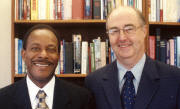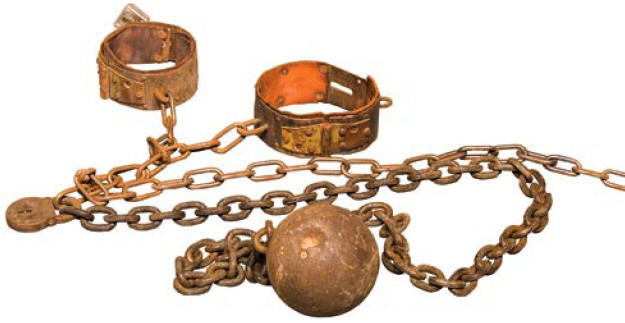General: A Sorry State of Affairs – Understanding the Power of an Apology
 “Why should I apologize to the descendants of slaves, or the holocaust, or the Northern Irish? I didn’t do it. It happened before I was born. How can apologizing for things you didn’t do help anything? Is it biblical? Can you back it up? Aren’t you just stirring up trouble?”
“Why should I apologize to the descendants of slaves, or the holocaust, or the Northern Irish? I didn’t do it. It happened before I was born. How can apologizing for things you didn’t do help anything? Is it biblical? Can you back it up? Aren’t you just stirring up trouble?”
At the Office of Reconciliation Ministries (ORM) we get such questions often. They are logical questions. They deserve an answer.
Consider this. The police chief of a major American city, a leader in community reconciliation, recently confessed to one of us a lapse in judgment. He had sat down at a restaurant where the waiter serving him was Turkish. Suddenly, deeply buried resentments inside the chief’s psyche rose to the surface. He proceeded to make life miserable for the young waiter.
Why?
The chief was of Armenian descent. Inside him were deep feelings he had heard around the family table concerning the Armenian genocide, one of the 20th century’s most heinous crimes. “The Turks have never apologized for that episode,” the chief told one of us. “Still, that was no excuse for my behavior toward that young man.”
Events 100 years old came hurtling out of the past as if they were wounds from yesterday.
“Land of the Living Past”
Remember “ethnic cleansing”?
In the 1990s, millions of people in the Balkans found themselves caught up in hatreds and resentments that went back to squabbles and atrocities of the 1300s. One journalist called this area “the land of the living past.”
In writer William Faulkner’s words, “The past isn’t dead. It isn’t even past.”
Ancient hatreds and animosities still exist. The trouble is already out there walking around. The dead hand of the past is not so dead. People still living carry around bitter folk memories of wrongs inflicted on their ancestors, wounds that have been passed on down. A phrase from Exodus 20:5 comes to mind: “the sins of the fathers to the third and fourth generation.”
Hatreds take on a life of their own—the Capulets and the Montagues in “Romeo and Juliet;” the Hatfields and the McCoys in early America. In Bosnia the hurt went marching down the generations.
In the face of deeply rooted hatreds, can a simple apology be of much help?
“Attitudes have a kind of inertia,” wrote M. Scott Peck. “Once set in motion they will keep going, even in the face of the evidence. To change an attitude requires a considerable amount of work and suffering.”
“Work and suffering.” That’s the hard part. So where to begin? Who is responsible for trying to break such cycles of hatred? The dead? Obviously not. Who, then, will step into the breach, and how?
Sins of the Fathers?
Many counselors believe that an indispensable first step in shutting down any cycle of hatred is to work toward an apology. “What—a simple apology?” Wait. No apology is simple. That’s why it has to be “worked towards.” It’s a process. It requires emotional and spiritual commitment on the part of the one offering it—and for the injured party to accept it. Which is to say that neither mercy nor forgiveness are easy. On anyone’s part.
 |
| “Can a living generation be held accountable for what their ancestors did?” |
Jesus alluded to this in Matthew 5:23-24, “Therefore, if you are offering your gift at the altar and there remember that your brother has something against you, leave your gift there in front of the altar. First go and be reconciled to your brother; then come and offer your gift.”
Consider this: Only humble people—the meek—can offer a sincere apology.
Attitudes unchecked go from bad to worse. They harden into obsessions. On the national scene they often show up as crusades, vendettas, pogroms, purges—the ugly lexicon of hate.
“Can a living generation be held accountable for what their ancestors did?”
But what about things that happened generations ago? Can a living generation be held accountable for what their ancestors did? Apparently so. 2 Samuel 21 records a severe famine in Israel in the time of King David. David sought God’s advice. He was told: “It is on account of Saul and his blood-stained house; it is because he put the Gibeonites to death.” Centuries before, the Gibeonites had been promised protection as resident aliens in Israel (Joshua 9:15). Saul had broken that pledge. Now David’s generation was paying the price. “David asked the Gibeonites, ‘What shall I do for you? How shall I make amends…”
Offenses are personal. To deal with them often takes a personal response. Even on the parental level we can see the power of an apology. When a father or mother or minister sincerely apologizes to a young person for overreacting harshly, immense goodwill can be created. It thaws out the frozen relationship where everyone stumbles around in a half-evasive daze, not sure of what to do next.
Breaking the Cycle
Eveleyne O’Callahan Burkhard, a reconciliation specialist in Ireland with experience in Cambodia, said, “The first step towards peace is to talk truthfully about what went wrong.” That takes courage. A sincere apology often clears the air. “I’m sorry we’re having this problem.” Where wrongdoing is deeply layered it takes stamina to break down barriers. “There are many examples in history of nations who have tried to bury rather than face the past,” added Burkhard. “If we try to ignore or bury the past it will haunt us and may even destroy us.”
Forgiveness is an act of release. It can be graciously extended after a generous apology is offered. But when there is a refusal to admit that someone somewhere did something very wrong, relationships remain frozen. Human nature being what it is, the next step is often to blame the victims for inflating the situation. “You’re making it up. It’s not that bad.”
And so, the cycle continues. The sickness remains. But the good news is that there is a better way. It often begins with an apology.
The Office of Reconciliation Ministries, a ministry of Grace Communion International, promotes reconciliation between different ethnic and people groups. Contact them at: www.atimetoreconcile.org
Author: Curtis May and Neil Earle

